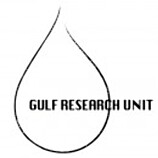
Archive: Gulf Research Blog
Blog articles from 2009 to 2012. The Gulf Research Unit is research programme based at the University of Oslo.
Does Saudi Arabia Really Want a United Iraq?
Denne artikkelen er over ti år gammel og kan inneholde utdatert informasjon.
By Reidar Visser
The list of Iraqi guests at the palace in Riyadh over the past weeks prompts numerous questions about Saudi policy towards its eastern neighbour.
For several years now, Riyadh’s Iraq policy has been a lot more passive than that of Iran, characterised by more muttering than meddling, and with relatively few attempts to reach out more broadly beyond Sunni-oriented leaders.
For a long time it seemed as if the Saudi leaders still held on to futile dreams of an Iraq where Shiites could be almost excluded, as indicated for example by reports that Riyadh played a role in scuppering the tentative but promising alliance between Abu Risha (the awakening leader of Anbar) and Nuri al-Maliki last summer.
But with recent visits to Riyadh by ISCI’s Ammar al-Hakim and Kurdish leaders Jalal Talabani and Masud Barzani, it is clear that the problem does not have to do with insurmountable ethno-sectarian barriers, but rather with the Saudi choice of guests.
Between them, messieurs Hakim, Talabani and Barzani must take the lion’s share of the responsibility for the virtual wrecking of the Iraqi state through the design of the new, highly decentralising Iraqi constitution in 2005, as well as subsequent measures between 2005 and 2007 to consolidate the new order (including a law on implementing federalism south of Kurdistan).
By way of contrast, Nuri al-Maliki, the Shiite leader who has made the greatest attempts at reversing some of the unfortunate results of the 2005 constitution, especially since 2008, was not invited to Riyadh.
Rumours abound as to the possible greater strategy behind these moves on the part of the Saudis.
Is it a push to bring together the Kurds, the Iraqi National Alliance (INA), Iraqiyya and SLA/State of Law (but without Maliki) in a four-party grand coalition on the pattern preferred by Iran – in other words, an agreement among two regional powers to keep the next government in Baghdad weak and internally divided?
After all, most of the other nominal Arab supporters of a unified Iraq in the Gulf are already heavily present in the Kurdistan region in terms of economic investments, and some months ago, a company in Ras al-Khaima (UAE) that also has Saudi owners, bought shares in DNO, the Norwegian oil company that is controversial for the role of Peter Galbraith in landing their deal with the Kurdish authorities.
One can already get the impression that all the talk of a unified Iraq on the part of many Arab states is just empty rhetoric.
Others suggest that developments in Riyadh to some extent may reflect US coalition preferences. There have already been hints that Washington generally supports the idea of a weak, oversized government, although in a variation of what Iraqi parties are talking about, it has been suggested that the US would prefer to exclude the Sadrists.
That would seem to be a particularly worrisome incarnation of the “government of national unity” idea: If the next Iraqi government is going to be oversized and weak anyway (i.e. in contrast to an ideologically coherent and therefore strong minimal-winning coalition of Iraqiyya and SLA), it makes little sense to exclude the potentially most violent element from the mix (the Sadrists) while keeping as a partner a now very small party with more long-standing ties to Iran and with a history of allying with the Kurds against Baghdad (ISCI).
The end result might well be the ultimate subversion of the will of the Iraqi electorate, with the marginalisation of Maliki, Allawi and the Sadrists – all the top vote-getters from 7 March – and a government formed by compromise candidates from the remains of SLA and Iraqiyya and with the Kurds and ISCI in dominant roles.
It all seems like flashback of a favoured US strategy dating back to 2007 of seeking to marginalise the Sadrists and instead holding on to a highly implausible dream of the pro-Iranian and numerically weak ISCI/Badr as the great “moderates” in Iraqi Shiite politics.
A taste of what this kind of combination might imply for upcoming government negotiations was amply demonstrated by Mahmud Uthman, a leading Kurdish politician, before the weekend. In an interview on 14 April he made it clear that the Kurds would enter the government negotiations with a demand for Jalal Talabani to continue as president.
Not only that: The powers of the president should be expanded, beyond the purely ceremonial! This from the Kurds, the great constitutionalists…
It comes of course in addition to demands for rights to sign oil contracts, Kirkuk, disputed territories more generally, and peshmerga militia privileges.
Meanwhile, by refusing to nominate candidates for the compensation seats according to the 15 April deadline specified by IHEC, the other parties seem to be using that issue as leverage in a bid to influence the appeals process, perhaps especially SLA (news of a manual recount for Baghdad is in fact breaking right now).
Unified, in a technical sense, maybe that is still a Saudi aim for Iraq. But a united and strong country is apparently not on the wish list.






